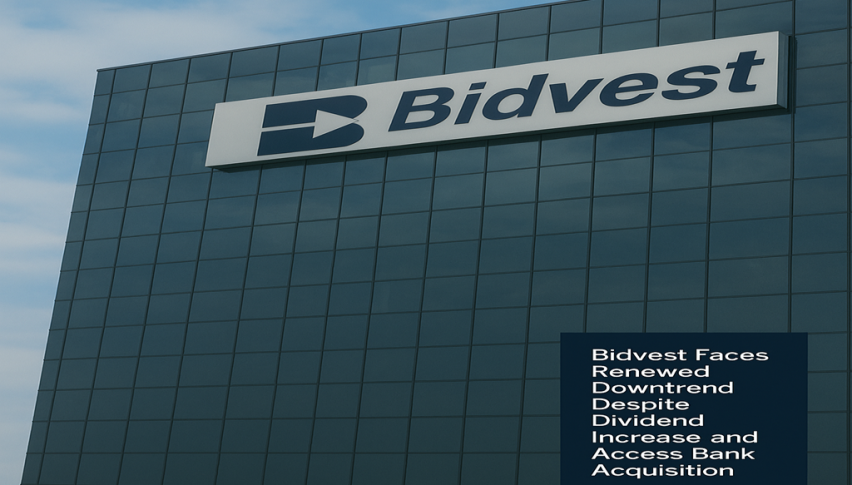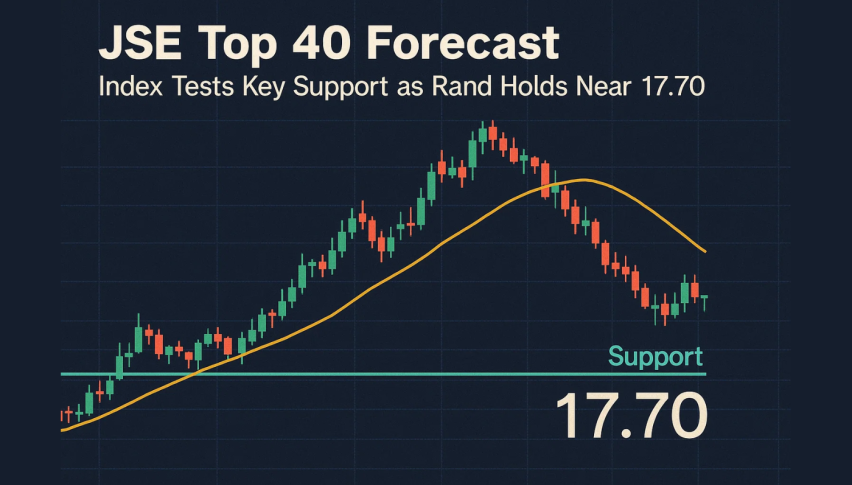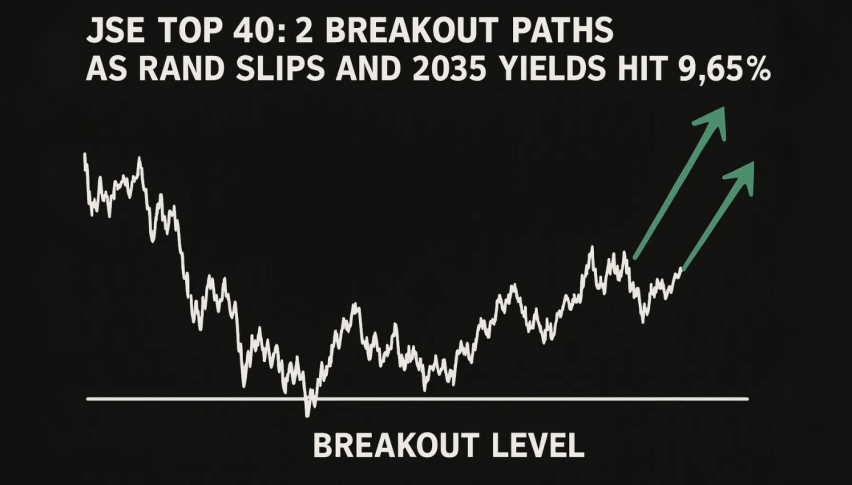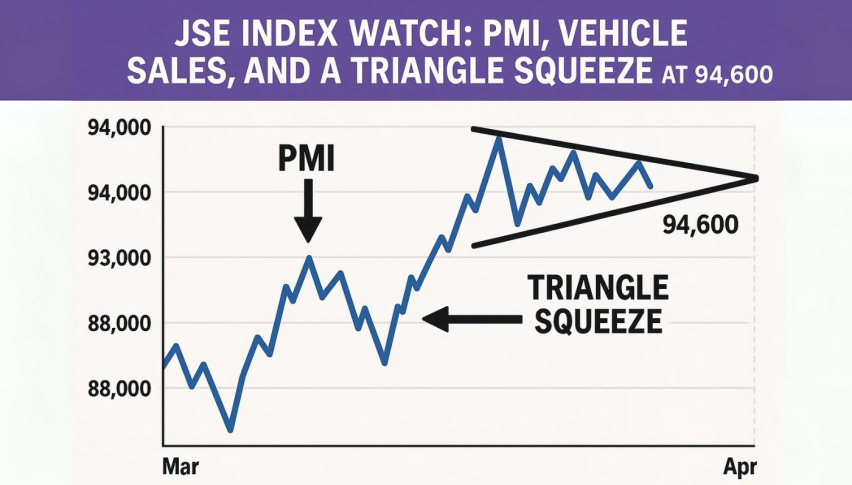Bidvest Share Price Tests Key Support After Soft Earnings, Despite R2.8bn Acquisition
Bidvest Group’s half-year earnings update revealed mounting margin pressure and softer profitability, sparking renewed selling in its share

Quick overview
- Bidvest Group reported a 2% decline in headline earnings per share for the year ended June 30, 2025, amid mounting margin pressure.
- The company's share price has dropped nearly 30% year-to-date, reflecting sustained bearish sentiment despite a modest increase in dividends.
- While revenue rose nearly 5%, higher costs eroded profitability, leading to earnings per share that missed analyst expectations by 12%.
- Bidvest is selling its bank to Access Bank to streamline operations and focus on core divisions, with proceeds aimed at debt repayment.
Bidvest Group’s half-year earnings update revealed mounting margin pressure and softer profitability, sparking renewed selling in its share price and signaling investor caution despite resilience in some business segments.
Earnings Results Under Pressure
Bidvest reported a 2% decline in headline earnings per share (HEPS) for the year ended 30 June 2025, as flat gross margins dragged on performance. The announcement, released via SENS on Monday morning, came alongside a share price drop of around 9% for the week, deepening its bearish run in 2025.
The group declared a final dividend of 453 cents, a modest 1% increase from the previous year, signaling management’s confidence in maintaining shareholder returns despite operational headwinds.
Share Price Performance
Bidvest stock has been in decline since September, when it traded around R305. The price has now dropped nearly 30% year-to-date, underscoring sustained bearish sentiment. Attempts at recovery in April failed as the 200 SMA on the weekly chart acted as strong resistance, rejecting upward momentum.
BVTJ Chart Weekly – The 200 SMA Turned Into Resistance
That technical barrier was tested again last week, with the latest weak earnings driving further losses. On the monthly chart, the 100 SMA (green) is once again being tested as support. It held during the first-quarter selloff, but with the stock now retesting it, a break lower could open the door to the 2020 low of R130, aligning with the 200 monthly SMA.
BVTJ Chart Monthly – The 100 SMA Is Again Under Attack
Business Segment Insights
Despite headline weakness, Bidvest reported robust cash generation and growth in its automobile and services divisions, partially offsetting softer results in freight and commercial operations.
The Services International segment remains a core driver, contributing more than a third of total revenues. However, high operating costs and inefficiencies across other divisions continue to pressure margins and earnings quality.
Bidvest FY2025 Results: Revenue Rises, Profits Slide
Key FY2025 Results
- Revenue: R126.6 billion, up 4.9% year-on-year.
- Net Income: R5.89 billion, down 4.2% from FY2024.
- Profit Margin: 4.7%, lower than 5.1% last year due to higher costs.
- Earnings Per Share (EPS): R17.32, down from R18.09 in FY2024.
Performance vs. Expectations
- Revenue missed analyst forecasts by 1.3%.
- EPS came in 12% below expectations.
- Services International contributed R43.2 billion, representing 34% of total revenue.
- Cost of sales amounted to R91.5 billion (72% of revenue), heavily pressuring margins.
- General & Administrative expenses were R23.8 billion, making up 82% of total operating expenses.
Outlook
- Revenue is projected to grow 6.9% annually over the next three years, significantly outpacing the 2.8% industry average for Global Industrials.
- Focus remains on operational efficiencies and cost management to stabilize profit margins.
- Market watchers expect Bidvest to leverage its strong Services International segment to drive above-average revenue growth despite lingering margin headwinds.
Bidvest Bank Sold to Access Bank
Bidvest Bank is being sold to Nigerian financial powerhouse Access Bank, which has steadily expanded its South African footprint since entering the market in 2020. The R2.8 billion disposal, currently under regulatory review with the Prudential Authority, marks another step in Access Bank’s pan-African growth strategy while allowing Bidvest to streamline operations.
According to Bidvest, the entire proceeds from the transaction will be directed toward repaying existing debt, strengthening the group’s balance sheet and providing greater financial flexibility in the face of margin pressures elsewhere in the business.
The deal, once approved, is expected to further consolidate Access Bank’s position as a growing player in South Africa’s competitive banking sector, where it is targeting both retail and corporate clients. For Bidvest, the sale reflects a strategic decision to focus resources on its core services, industrial, and trading divisions while exiting non-essential assets.
Broader FY2025 Context
For the full year, Bidvest’s revenue rose nearly 5%, but higher expenses eroded profitability. EPS missed analyst estimates by 12%, highlighting the depth of cost pressures, with cost of sales consuming nearly three-quarters of revenue and administrative expenses adding to the drag.
While management has outlined a positive growth outlook, with revenues expected to expand 6.9% annually over the next three years compared with just 2.8% for the global industrials sector, investors remain skeptical until margins show signs of recovery.
Conclusion
Bidvest’s H1 and FY2025 performance paints a mixed picture: solid revenue growth and expanding segments in services provide a foundation for long-term growth, but sustained cost pressures, flat margins, and missed earnings expectations weigh heavily on sentiment. With the share price under prolonged pressure and critical support levels being tested, investor focus has shifted toward whether management can deliver meaningful cost discipline and operational efficiencies.
If Bidvest can maintain growth momentum while restoring profitability, the stock could see renewed upside. However, failure to defend key technical support zones and continued expense-driven margin erosion risk pushing shares toward multi-year lows.
- Check out our free forex signals
- Follow the top economic events on FX Leaders economic calendar
- Trade better, discover more Forex Trading Strategies
- Open a FREE Trading Account




